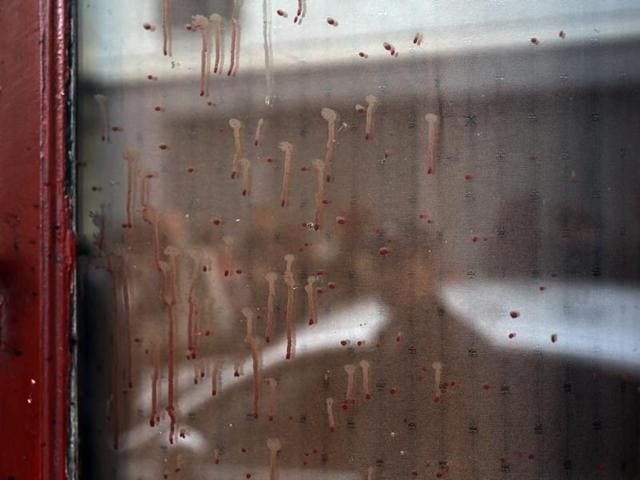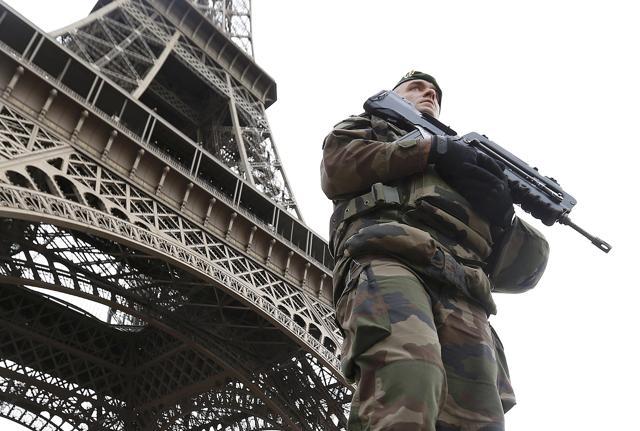Paris attacks: Increasing radicalisation of youths in recent years
Radicalisation among young Muslims has been growing in recent years, particularly after the Iraq war. Hundreds of French nationals are reported to have gone to join the war in Syria, the second highest number from a European country after Britain.
On Friday evening, France faced its worst terrorist attack, its own 9/11, though it was actually more like Mumbai 26/11. In attacks at different popular locations in Paris, groups of gunmen opened fire and took hostages.

The number of deaths is nearly 130, and likely to grow because of more than 200 injured. Several people are critically injured. For the first time in the last half century, a state of national emergency was declared and France sealed its borders.
The largest casualties occurred at Bataclan concert hall where Eagles of Death Metal, a US rock band, was performing to a packed auditorium. Hostages were taken and many were summarily executed. The attackers were killed by French SWAT teams, which had been on standby on account of a threat alert.
At the Stade de France, a French-German football match was underway and President Hollande and German foreign minister Steinmeier were among the spectators when an explosion, reportedly a suicide bomber, went off outside. Four locations, bars and restaurants in central Paris, witnessed smaller scale attacks by gunmen with automatic weapons.
The Islamic State has claimed responsibility for the attacks and there are reports that French intelligence agencies had been cautioning about blowback from the French role in the Syrian conflict. The simultaneity of the attacks would indicate that some degree of coordination existed among the attackers.
Read | ‘Low cost, high impact’: Paris terror similar to Mumbai attacks
France has one of the highest percentage of immigrants in Europe. Muslims account for nearly 10% of the total population. Radicalisation among young Muslims has been growing in recent years, particularly after the Iraq war.
Given the concentration of Muslim communities in and around certain urban agglomerations (Paris, Marseilles and Toulouse, for example), networks of mosques and internet cafes sprang up quickly and have linked up with networks in Pakistan, Afghanistan, Iraq and now Syria.
In fact, hundreds of French nationals are reported to have gone to join the war in Syria, the second highest number from a European country after Britain.

In January, the attack on the Charlie Hebdo offices by two radicalised brothers, Cherif and Said Kouachi, left 11 dead, including the editor, and stunned the nation. The magazine known for its irreverent and anti-religious takes on Islam, including caricatures and cartoons of the Prophet, had been targeted earlier.
Like Mohamed Merah, who had gone on a killing spree targeting French soldiers and Jewish schoolchildren in Toulouse and Montauban in 2012, the Kouachi brothers had been radicalised initially in local mosques and later during their visits to Pakistan, Afghanistan, Yemen and Syria. The Charlie Hebdo attacks were claimed later by al Qaeda in Yemen.
Read | Profound sorrow in Paris but no sign of anger, at least not yet
France has traditionally prided itself on the rather strict separation of the Church and the State, first legalised in 1905 and then enshrined in its Constitution as the concept of “laicite”. This was further strengthened by the 2004 law prohibiting the wearing of “conspicuous religious symbols” in public institutions.
This alienated sections of the Muslim population as it prohibits the wearing of the hijab, though to be fair, it applies equally to Catholics displaying a prominent cross or Sikh students wearing a turban in school.
Since 2012, there is a new law to track individuals and organisations that have linkages with radical groups even if there has been no crime on French territory. Inter-faith dialogues have been undertaken by the government earlier this year.
Rakesh Sood is a former ambassador to France. The views expressed are personal.





